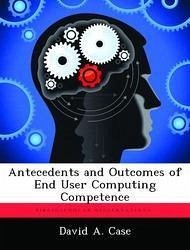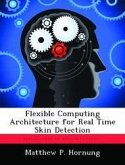The tremendous proliferation of end user computing (EUC) in the workplace over the past few decades is cause for concern in public and private organizations. Computer use has moved from individuals working with "dumb" terminals in centralized networks to individuals operating personal computers, just as powerful as yesterday's mainframe. The end user has had to evolve and will continue evolving as well; from someone with low level technical skills to someone with a high level of technical knowledge and information managerial skills. Because EUC continues growing more sophisticated, end users must not only maintain a level of competence, but prepare for the next generation of computing technology. Doing so will enable organizations to continue enjoying the positive benefits of EUC success. Research indicates that EUC success may depend on end user competence. Using Structural Equation Modeling (SEM) to test an integrated model of EUC success, the results of this study show that computer training, education level, beliefs about computer systems and the ability to operate them lead to end user computing competence.








